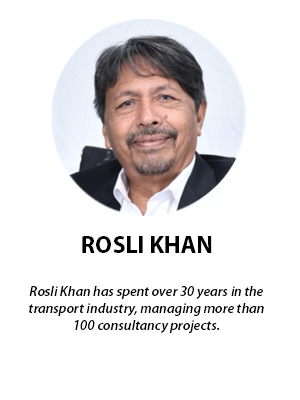
As we step into the promise of New Year 2024, one question which remains to be answered is whether calls for traffic congestion charges to be implemented in Kuala Lumpur will die down or amplify.
In tandem with that, will road safety prevail, or will the rising traffic volume claim more lives?
Expressing concern for KL’s sustainability, natural resources and environmental sustainability minister Nik Nazmi Nik Ahmad said there was an urgent need to address the congestion epidemic.
The congestion beast
The minister’s call for action emphasised the need for congestion charges implemented within the Klang Valley to align with sustainability goals. He also acknowledged that the endeavour demands robust political determination.
The proposal hinted at the Cabinet’s earnest desire to tame the congestion beast, but, shorn of details, has left much to speculation. In reality, the government does have workable models it can easily follow.
As long ago as in 1975, our southern neighbour, Singapore, introduced its area road pricing (ARP) system, a triumphant predecessor to congestion charges. The ARP system serves as a testament to the potential effectiveness of such measures.
All we need to do is to study how Singapore’s Land Transport Authority (LTA) has implemented its system, and replicate it for Kuala Lumpur. Both Singapore and KL have more or less similar urban characteristics, including the nature of road users and their penchant for owning private cars.
If the ARP system can work in Singapore, then there is no reason why it should not work for KL as well. Alternatively, we could look to London, another big city which our ruling elite should be familiar with.
Boasting one of the world’s most established public transport systems, London adopted congestion charges in the late 1990s, and recently coupled it with high parking fees, ultra-low emissions zones (Ulez) charges, and stringent enforcement, transforming itself into a sustainable city now virtually devoid of traffic snarls.
Malaysians in London tend to use public transport while there, but readily switch to private cars when back in KL. Ironically, whenever these drivers encounter traffic congestion in KL, they end up questioning why we cannot be like London.
KL’s traffic nightmare
In contrast to Singapore or London, KL’s traffic jams continue to get worse.
It seems that none of the measures implemented in the past have worked, including strategies to add more basement levels for additional parking space in new high rise buildings, road widening and the continued building of elevated roads and new urban expressways.
In fact, these new expressways have attracted more traffic into KL, resulting in worsening traffic congestion over a wider road network in and out of the city.
Also, elevated urban highways have made KL look ugly when compared to Singapore or London, which are both very green and attractive to tourists.
Consideration for either the ARP or congestion charges approach has been on-going for years, but have been repeatedly deferred by those in power.
5 key elements
While city administrators continue to grapple with the issue, KL roads and newly built urban expressways continue to suffer perennial gridlock, irritating everyone.
Thus, the need for expert advice in the formulation of strategic initiatives has become increasingly important.
In this regard, five key initiatives must be considered in parallel to support congestion charges:
- a ban on road level parking spaces
- a reduction of city centre basement parking spaces
- an increase in parking fees
- greater enforcement, and
- an increase in public transport capacity.
These five elements must be implemented swiftly if KL is serious about tackling rising traffic congestion.
Realistically, there are no other choices available to deal with the issue.
The city must decelerate its congestion trajectory urgently. These proactive steps set out a promising path toward a more sustainable urban future.
Similar to both Singapore and London, there must be strong political will accompanied by an adequate implementation budget and proper execution to resolve the matter once and for all. - FMT
The views expressed are those of the writer and do not necessarily reflect those of MMKtT.


No comments:
Post a Comment
Note: Only a member of this blog may post a comment.